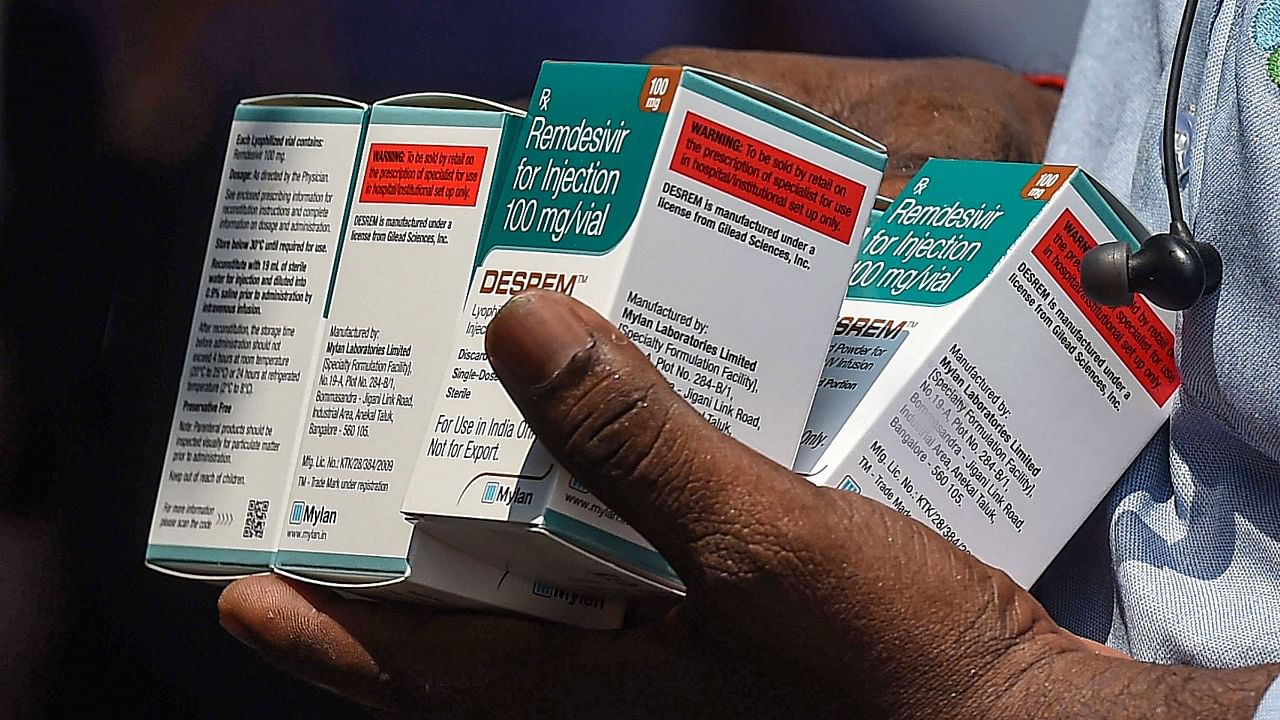
The government on Monday issued an advisory for rational use of Remdesivir in Covid-19 treatment, underlining that the anti-viral drug must be advised by senior faculty members directly involved in the patient's care.
The drug should be provided by the hospitals, and patient's relatives should not be asked to procure it from the retail market, it said.
To stop the misuse of Remdesivir, the government further recommended that if the drug is to be advised or ordered during odd hours, it should be done by the duty doctor after a telephonic consultation with a senior faculty member, specialist or a unit in-charge, and that advise or order must be written and it should bear the name, signature and stamp of the doctor concerned.
Also Read | Centre stops allocation of Remdesivir to states, says production of Covid-19 drug increased tenfold
According to the advisory, every hospital needs to set up a special drug committee (SDC) to review the use of Remdesivir at the facility periodically.
It would be preferable to have a pharmacology professor or faculty as a member of the SDC wherever available. The committee should share its findings with the clinicians periodically to ensure rational and judicious use of Remdesivir.
"Remdesivir should be procured and provided by the hospitals only; the patient's attendants/ relatives should not be asked to procure Remdesivir from retail market," the advisory underlined.
The MOHFW, AIIMS and the ICMR had jointly issued treatment guidelines for management of Covid-19 patients in the form of a guidance/algorithm on 23rd April.
But this guidance/algorithm does not prevent misuse/overuse of Remdesivir, the advisory said.
The purpose of this document is to stop irrational use or overprescription of the reserve/experimental/emergency-use authorisation drug Remdesivir.
For this reason, the Joint Monitoring Group, under the chairmanship of the Director General of Health Services, took into consideration findings of some studies to issue the advisory.
The studies he took note of are -- The 'Adaptive Covid-19 Treatment Trial' that found Remdesivir is useful in cases of Covid-19 with SpO2 lesser than 94 per cent on room air (moderate to severe cases) if it is administered within seven to 10 days of illness.
Remdesivir led to a shorter median time from randomisation to recovery (10 days versus 15 days with placebo) and may have reduced the time to hospital discharge (12 days versus 17 days) but did not show a mortality benefit, it showed.
The 'Solidarity Trial' conducted by WHO in 30 countries from March 2020 at 405 hospitals: 11,330 adults underwent randomisation; 2,750 were assigned to receive Remdesivir. The interim results of the 'WHO Solidarity trial' published in December 2020 showed that Remdesivir had little or no effect on hospitalised patients with Covid-19, as indicated by overall mortality, initiation of ventilation, and duration of hospital stay.
In view of the above, Remdesivir is to be used only in select moderate/severe hospitalised Covid-19 patients on supplemental oxygen as it is a reserve drug approved under Emergency Use Authorization only based on limited scientific evidence globally.
It is not indicated in mild Covid-19 patients who are in home care/Covid Care Centres.
Physicians/doctors are advised to exercise extreme caution in using Remdesivir to stop its misuse as this is only an experimental drug with potential to harm, has relatively high cost and has limited availability, the advisory said